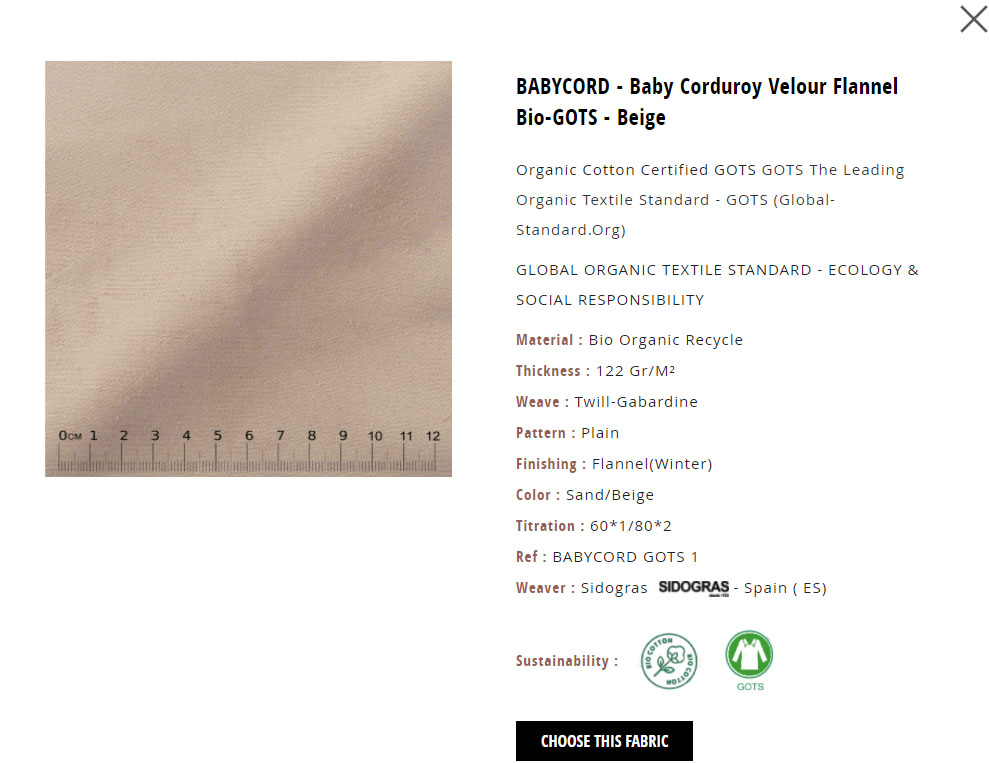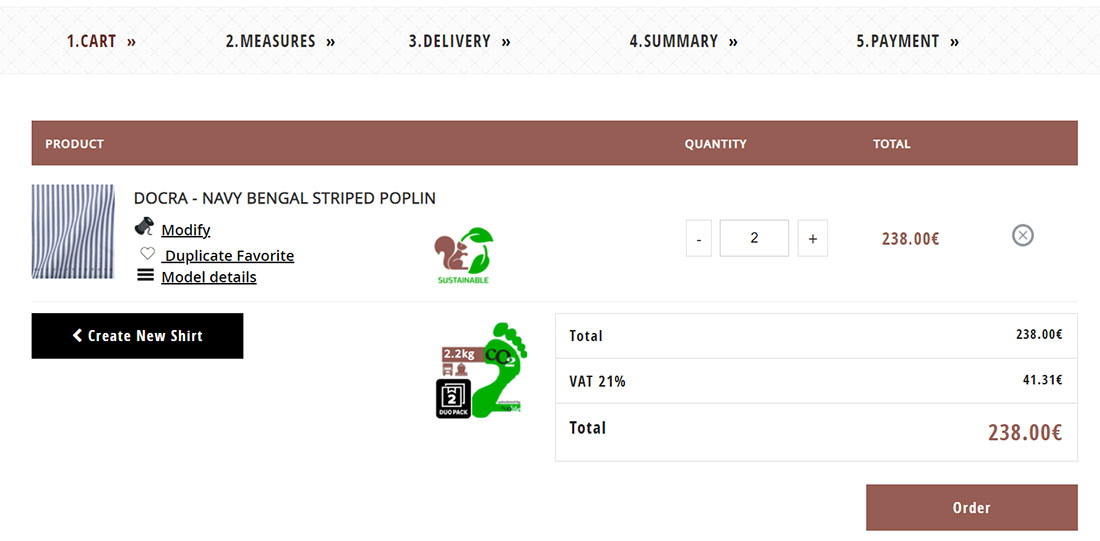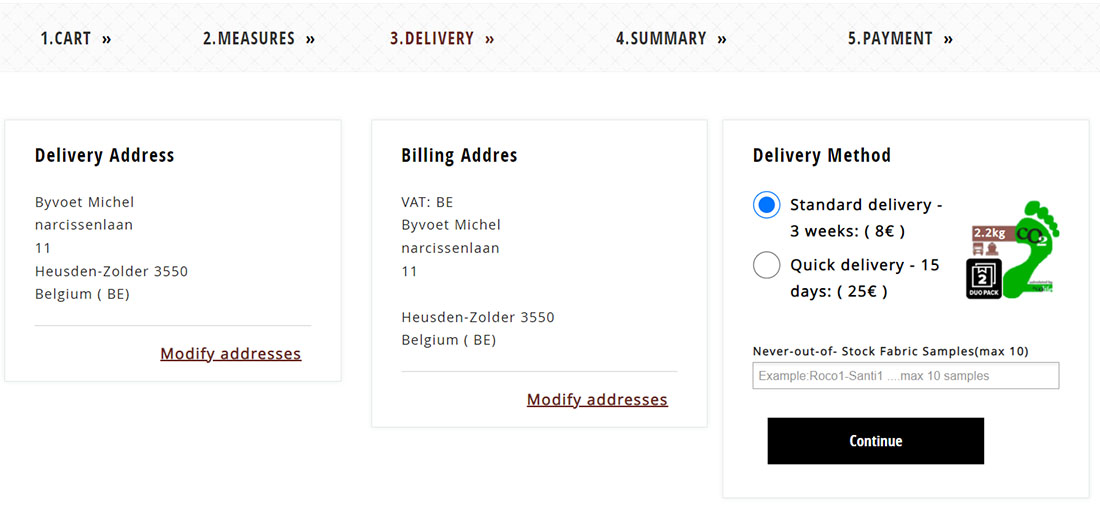Bivolino SUSTAINABILITY
2021-12-03 15:18:42
Bivolino.com launches world’s first transport carbon footprint calculator for his bespoke shirts. Customized shirts as the ultimate sustainable alternative to fast-fashion! Made-to-measure and bespoke feels like a refreshing dive into a more innovative, caring and sustainable future for fashion.
Made to measure shirts produced on demand and delivered by sea and road generate a very reasonable 1.6 kg/CO² emission per shirt, three times lower than mass produced shirts. This study has been conducted by Ecolife.be.
Off-the-rack shirts produced in far-east, transported by sea and sold through webshops or stores has a respectively 2.7 kg CO² and 4.2 kg CO² footprint, considering an average of 25% returns. ‘Flying-in’ shirts from far-east has an even more negative impact on the environment with a transport carbon footprint of 6.8 kg CO². As a single tree can absorb CO² at a rate of 20 kg/year, we need to plant one tree to offset carbon emissions for each dozen made to measure shirt and for each four mass produced shirts.

Fabric Sustainability icons on the website
On the website, in the configurator, sustainability icons reflects the eco-friendly properties of the fabrics, highlighted with the brown “squirrel label”. The country of origin and logistic route to the shirtmakers, both located in the Mediterranean area, affects the footprint (visible in realtime in the shoppingbasket).
For each fabric, the country of origin is provided: Italy, Spain, Far-East, Turkey…. Far-east woven fabrics get a penalty score of +0.75 kg CO²emission /kg/shirt.Most fabrics have sustainable characteristics: sustainable materials, organic fabrics, recycled fabrics, plant based, Oeko-Tex Standard 100, Lyocell, Recycled Microfiber, Eco-Viscose, Cold Wash, Green Clean, Organic Linen and Bio-Cotton.

Transparency, authenticity and traceability - No Greenwashing!
Consumer request more end-on-end supply chain transparency and traceability for their product purchased online. Authenticity for eco-labels, environmental certificates and sustainability indexes and scores, are a welcome information source for the customers. The Bivolino weavers adhere to certificates like GOTS https://www.global-standard.org/ , Sustainable Cotton Ranking https://sustainablecottonranking.org/, Better Cotton Initiative https://bettercotton.org/, Fairtrade, Global Recycled Standard, Good Fashion, Sustainable Apparel Coalition https://apparelcoalition.org/ and the ecolabel index. https://www.ecolabels.fr/
At Bivolino, the majority of the fabrics come from South-Europe (Italy), Turkey (including cotton from Egypt) and Roumenia. The shirts, produced in Europe (Romania) and Tunisia (EU-Mediterranean region), delivered by road (truck and boat), generate a carbon footprint of 1.6 kg C0² / shirt. Bivolino refuse to produce in the Far- and Middle East.
Packaging: recycled and compact by design
Bivolino’s Polyethylene packaging is recycled and multi-functional. The Recycled Carton Boxes are eco friendly and not overloaded with brand marks. DUO 2-Shirts packs reduces lost box space, getting the packaging waste down with 30%, and resulting in a lower footprint of 0.2 kg CO²/order.

Last mile delivery – Green Logistics
At checkout, standard delivery is 3 weeks. Bivolino uses green transport solutions from Bpost and DHL ( DHL GoGreen). Customers choosing for quick delivery options will be notified with the negative effects on the footprint: Air transport increase CO² emission with 1 kg /order.

Made to measure, as antithesis to mass-production and disposability, could be the answer to many of fashion’s ills. Bespoke fashion inherently slows us down and makes us think about what we’re buying. It reduces waste, centres craft and innovation, and proffers a more personal – and personalised – relationship with what we wear.







